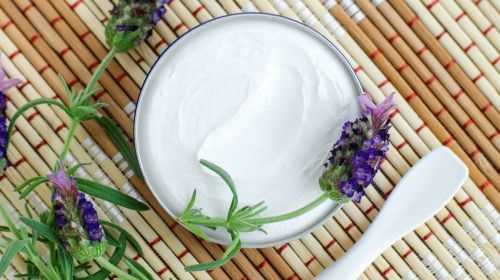Author: Monika Preuk, medical writer
Last updated: August 16, 2021
Written according to the highest scientific standards and checked by experts
Pimples and itchy rashes instead of flawless brown skin: If you are allergic to the sun, the skin reacts to UV light with unpleasant irritations. Which home remedies help with sun allergies and how can you prevent them?
-

- If you wear long clothes and stay in the shade, you reduce the risk of a sun allergy.
- © iStock.com/puhhha
Light skin types in particular often do not tolerate sunlight well. Instead of brown skin, the areas hit by UV rays become red spots, resulting in pustules that are extremely itchy. Strictly speaking, a sun allergy is not an allergy, but a sun eczema, medically known as polymorphic light dermatosis (PLD). The signs of “sun allergy” vary widely and range from burning, itchy rashes to thickening of the skin and blisters.
Article content at a glance:
Sun allergy treatment
In the case of a sun allergy, immediate measures are particularly important. At the first signs of polymorphic photodermatosis, these tips are useful:
Immediately go into the shade or inside. In any case, those affected should avoid exposing their skin to continued exposure to UV radiation.
Cooling ointments, lotions and gels with antihistamines (antiallergic agents) and hydrocortisone relieve itching and help the skin to recover. All of these products for the treatment of sun allergies are available in pharmacies without a prescription.
In more severe cases, the doctor will prescribe oral antihistamines, i.e. oral medications, as well as higher-dose cortisone preparations.
Until the sun allergy has subsided, no sun rays should be allowed to hit the affected skin areas
Home remedies for sun allergies
There are also a number of home remedies that can help with sun allergies. However, not all of them are recommended; some can even make the skin disease worse. The most famous home remedies for sun allergies and whether they make sense:
Cold envelopes: Cooling with wet cotton cloths makes sense. However, be sure to use a clean cloth. Otherwise the pustules can become inflamed.
Quark envelopes: Quark soothes the skin in the event of a sun allergy. The dairy product is anti-inflammatory, cools and relieves itching. Carefully wash the quark off with water before it dries – otherwise it will further damage the skin and be painful.
Aloe vera soothes irritated skin. Since fragrances can also irritate irritated skin, only unscented aloe vera products should be used.
olive oil Using it as a home remedy for burns, sunburn and sun allergy is not a good choice. Because it can increase the damage to the skin.
The four best foods for a healthy tan
TargetVideo
Targeted prevention of sun allergies
Anyone who already knows that their skin can react to the sun with a polymorphic photodermatosis should be careful in the first few days, especially in spring or when vacationing in the south. The skin should be able to get used to the UV rays slowly, also to avoid sunburn.
Further measures to prevent sun allergies:
Wear a wide-brimmed sun hat
Wear UV protective clothing: These are textiles that offer effective UV protection thanks to their special weave or coating.
Remember that UV rays can get through window glass up to a certain limit. Don’t forget UV protection on long car journeys or a sunny window seat in the office.
You should also protect yourself in the shade: UV rays reflected from bright surfaces are ubiquitous, especially at lunchtime, although not as intense as in the blazing sun.
Studies have so far not been able to prove beyond any doubt that dietary supplements containing vitamin E, beta-carotene and calcium prevent sun allergies.
Sun allergy, what to do?
TargetVideo
Correct sunscreen for those with a sun allergy
In addition to long clothing, the most important measure to prevent sun allergies is to use a suitable sunscreen. Sunscreen should meet the following criteria for people who are prone to sun allergies:
Protection against UV-A and UV-B rays
High sun protection factor of at least 30 (even higher for very light skin types)
no fragrances
no preservatives
With the right sunscreen and UV clothing, you are usually well protected against sun allergies.
Sun allergy: what are the causes
It has not yet been established which mechanisms exactly trigger a sun allergy. So far there are the following hypotheses:
Under the influence of UV light, the body creates a substance to which the immune system reacts with inflammation. However, it is still unknown which substance is involved.
In every human being, the body forms free radicals when they come into contact with sunlight, which attack cells and lead to reactions such as sun allergy. Normally, antioxidants come on the scene immediately and there is no skin reaction. Science cannot yet explain why this does not happen to some people and why they develop a sun allergy.
Phototoxic reaction or hives from the sun
There are also other skin diseases that arise from the sun and are often incorrectly referred to as sun allergies:
Phototoxic reaction (phototoxicity): The cause is the chemical reaction of the UV rays on and in the skin with another substance – for example in sunscreen. In this case the phenomenon is called Mallorca acne. Components of a skin cream or a drug (certain dehydrating agents, antibiotics or cardiovascular drugs) as well as plant substances in grass are also possible triggers.
Solar urticaria (Urticaria solaris): The skin swells under the influence of UV light. Urticaria forms, i.e. hives, with very itchy, large wheals that spread over the entire body. In the worst case, anaphylactic shock threatens.
Order the newsletter
Do you have a question?
Would you like information on specific symptoms or medical advice? Here you can ask your questions to our experts or other Lifeline users!
.

